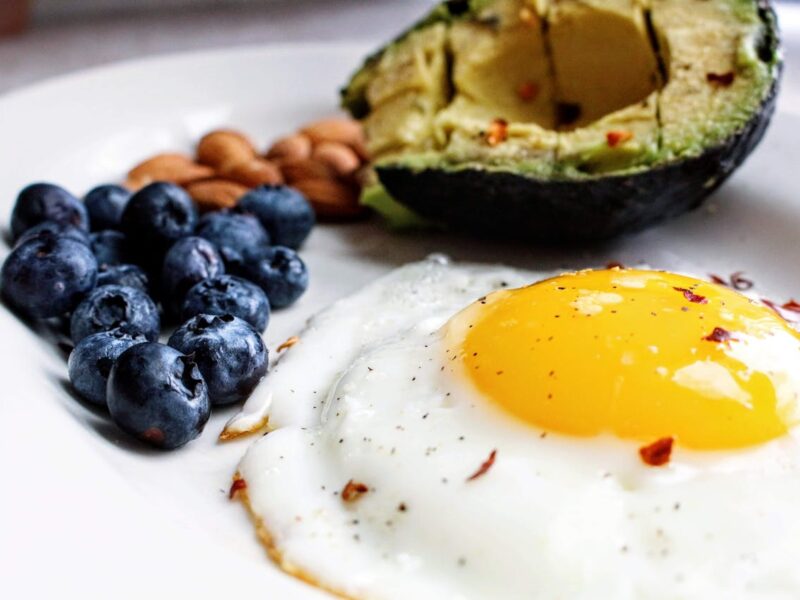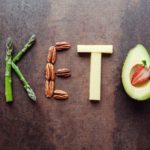The keto diet has been around for a while, and its uses for well-being are well documented. Its use in the management of neurologic conditions like concussion and migraine is becoming more mainstream. This article aims to outline the benefits of the keto diet for the holistic management of migraine and concussions. It will provide valuable insights into why the diet effectively improves recovery time and quality of life. Let’s dive in.
Concussions and the Keto Diet: Understanding the Connection
- Concussions involve cellular and metabolic changes in the brain, causing inflammation, oxidative stress, and neuron damage. They also produce symptoms of fatigue, dizziness, brain fog, eye tracking issues, headaches, and cognitive challenges. The ketogenic diet has demonstrated neuroprotective and anti-inflammatory properties that may help individuals recover from concussions. By providing the brain with ketones from fats instead of glucose, the keto diet could offer a more consistent energy source and support the brain’s repair mechanisms after an injury. It also provides a more stable source of glucose for the brain, which is vital to the long-term rebuilding process that occurs post-injury.
The Neuroprotective Effects of Ketosis
- Ketosis has been linked to improved mitochondrial function, reduced oxidative stress, and enhanced brain resilience. These effects can help minimize secondary damage after a concussion and restore cognitive function, memory retention, and overall brain health. Additionally, ketones have anti-inflammatory properties that may help alleviate neuroinflammation, a common feature of concussive injuries. When combined with intermittent fasting, these tools provide the brain with the best environment to heal quickly and thoroughly.
Implementing the Keto Diet for Concussion Recovery
- Integrating the ketogenic diet into a post-concussion recovery plan requires careful consideration and guidance from healthcare professionals. Regular bloodwork is a critical factor in ensuring that the diet is helpful for both recovery and overall health. Individuals can optimize their brain health and accelerate the healing process by prioritizing nutrient-dense whole foods, healthy fats, and adequate hydration.
Understanding Migraines and the Keto Diet: A Promising Connection
- Migraines are intricate neurological disorders that involve abnormal brain activity, vascular changes, and inflammation. These debilitating events can dramatically affect the quality of life and daily function. Studies indicate that the ketogenic diet’s ability to stabilize blood sugar levels, reduce inflammation, and regulate neurotransmitter function could benefit people susceptible to migraines. By encouraging a state of ketosis, the keto diet aims to improve brain energy metabolism and possibly diminish migraine triggers related to fluctuations in blood glucose and imbalances in neurotransmitters. It also reduces the load on the HPA axis, a system at the root of why people suffer ongoing migraine attacks. By ensuring a steady stream of glucose and eliminating the need for the liver to synthesize glucose on its own, the keto diet is a valuable tool to optimize the function of this keystone organ system.
The Anti-Inflammatory Effects of Ketosis
- Reducing systemic inflammation and oxidative stress may help mitigate the inflammatory processes that contribute to migraine onset and severity in the context of migraines. The keto diet’s effects on inflammation and oxidative stress are well-established in the literature. By shifting the body’s energy source from glucose to ketones, the keto diet may provide a more stable and sustainable fuel for the brain, potentially reducing migraine frequency and intensity.
Implementing the Keto Diet for Migraine Relief
- Adopting a ketogenic diet for migraine management requires a comprehensive approach that considers individual health needs, dietary preferences, and lifestyle factors. Incorporating nutrient-dense foods, adequate hydration, and mindful eating practices can enhance the keto diet’s effectiveness in reducing migraine symptoms and improving quality of life. Additionally, it’s helpful to choose foods that are histamine-safe and not on the prohibited list of migraine foods. Histamine is a hormone that causes both vasodilation and sensitization of pain nerves. It’s involved in normal pain processes like cuts and bruises. It is also active in migraine, which is why avoiding foods that trigger histamine release is crucial to more extendedlonger-term relief. The foods that should be avoided with migraine are
- Nitrites found in processed meats
- Aged cheese
- Caffeine
- Citrus fruits
- Red wine
- MSG
- Artificial sweeteners
- Cocao
- Foods containing gluten
- Dairy
Conclusion
- The keto diet is a valuable tool for the holistic management of neurologic disorders such as concussion and migraine. It stabilizes blood glucose so the brain has a consistent source of fuel needed for ongoing recovery. It also helps reduce metabolic stress associated with large fluctuations in blood glucose. By adhering to this diet, those suffering from these conditions will experience many other benefits, including weight loss, anti-oxidant function, and neuroprotective support.
About the Author
Dr. Thompson Maesaka is a co-owner and clinician at The Neural Connection, a functional neurology clinic in Edina, Minnesota. The Neural Connection specializes in the holistic management of concussion, dizziness, and migraine. Dr. Maesaka is an active proponent of educating people with chronic illnesses so they can take a more active role in their health outcomes.
Want to unlock greater wellness?
Listen to our friends over at the Wellness + Wisdom Podcast to unlock your best self with Drew Canole of Organifi:








 Reducing Food Waste: Tips for a Healthier Planet and Body
Reducing Food Waste: Tips for a Healthier Planet and Body